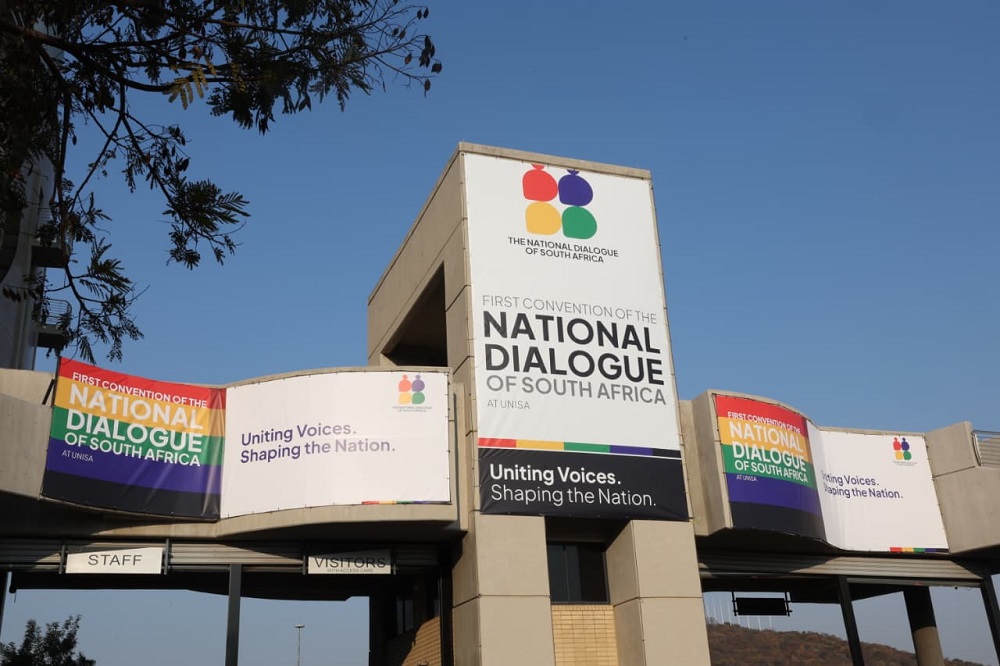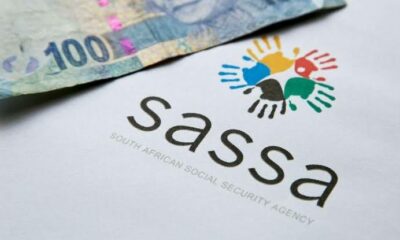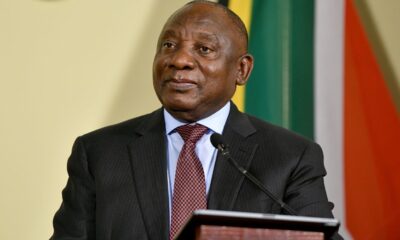News
South Africa’s National Dialogue: Why Business Cannot Afford to Sit on the Sidelines

When President Cyril Ramaphosa unveiled the National Dialogue on Poverty, Inequality, and Crime earlier this month, it was presented as a reset button for South Africa’s democracy. With R40 million allocated to convene voices from politics, civil society, labour, and business, the hope was to confront the deep fractures threatening the country’s future.
Yet not everyone is buying it. Two opposition parties dismissed the dialogue as political theatre. Civil society leaders questioned whether it would produce action or simply end in another glossy report. And business? For now, corporate South Africa is largely silent.
That silence may be the most dangerous response of all.
Why Business Should Care
South Africa’s economy does not operate in a vacuum. Rolling blackouts, water shortages, violent crime, and record-high unemployment have already eroded investor confidence and raised operating costs.
-
Crime alone drains tens of billions from GDP each year.
-
Johannesburg’s water crisis threatens manufacturing and supply chains.
-
International headwinds, from U.S. tariffs to weak local demand, squeeze profits further.
The National Dialogue is not just a political exercise. It is a business-critical platform. If it sparks reform, companies gain a more stable environment. If it fails, the private sector will inherit deeper instability, higher risks, and even more pressure from shareholders.
From Lobbyists to Leaders
For decades, the relationship between government and business has been transactional: tax breaks, regulation, and lobbying. But this moment calls for leadership, not lobbying.
Business has the expertise to propose bold, practical reforms:
-
How to turn trade disputes into new opportunities.
-
How to scale renewable energy investments.
-
How to retool education and training for South Africa’s unemployed youth.
These aren’t just policy debates. They are lifelines for an economy where youth unemployment tops 60%.
Bringing Every South African to the Table
One of the greatest risks of the dialogue is elitismhotel conference rooms packed with politicians, CEOs, and consultants while ordinary citizens look on from the sidelines.
Business can change that. Telcos, fintechs, and tech firms have the tools to expand participation: mobile surveys, digital town halls, community radio linked to live feedback loops. Every South African, whether in Sandton or Sekhukhune, should have a voice in shaping the country’s future.
If business doesn’t push for this inclusivity, the dialogue risks being irrelevant.
Trust is on the Line
South Africans don’t have much faith left in leaders, political or corporate. From state capture to scandals involving multinationals, trust has been steadily eroded.
If business joins the dialogue, it must do so with ethical leadership: transparency, accountability, and a commitment to the common good. Anything less will reinforce public cynicism.
Lessons From Codesa
South Africa has been here before. In the early 1990s, the Convention for a Democratic South Africa (Codesa) brought adversaries together to negotiate a democratic future. It wasn’t neat or perfectwalkouts and mistrust were constant, but it worked because no group was excluded.
Business leaders didn’t stay neutral. They provided resources, mediated conflicts, and reassured both sides that economic survival depended on compromise. Their active participation helped bridge political ideals with economic realities.
The same is true now. Business cannot afford to watch from the sidelines.
Avoiding Another Talk Shop
The sceptics aren’t wrong: South Africa has a history of indaba politics, where conferences end with lengthy reports that gather dust. Analysis isn’t our problem, execution is.
Here’s where business can tip the scales:
-
Demand clear timelines and measurable outcomes.
-
Offer technical expertise in logistics, finance, and project delivery.
-
Use digital tools to keep citizens informed and engaged in real time.
Without this, the dialogue risks becoming yet another expensive talk shop.
A Moment of Choice
The year ahead is pivotal. South Africa is set to host the G20 in 2025, while facing possible FATF delisting, tariff disputes with the U.S., and failing infrastructure at home.
The National Dialogue could be a platform for a new social compact, aligning government, business, and society around a shared vision. Or it could become just another missed opportunity.
The choice doesn’t lie with government alone. It also lies with business. And history will remember whether corporate South Africa chose to lean in or to look away.
For business, this is not charity. It’s self-preservation. Without stability, there is no growth. Without jobs, there is no market. And without trust, there is no future.
{Source: IOL}
Follow Joburg ETC on Facebook, Twitter , TikTok and Instagram
For more News in Johannesburg, visit joburgetc.com



























